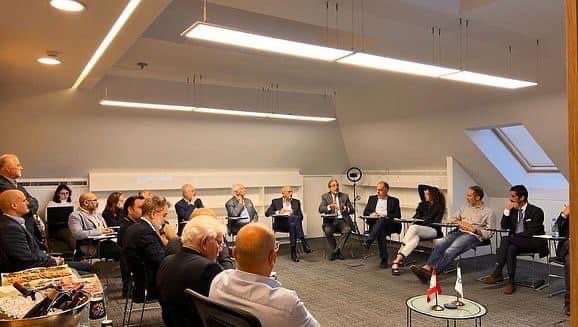Three Years After the Fall
October 22, 2022
The Lebanese Business Leaders Association (RDCL) organized a workshop entitled: “Three Years After the Fall: An Update on Solutions to Lebanon’s Monetary Crisis”. The event took place at RDCL headquarters. The objective of this workshop was to tackle the monetary policy and present the necessary recommendations for the monetary restabilization of Lebanon.
Mr. Jean Tawile, member of RDCL, moderated the workshop during which he made a detailed presentation about the stages of the economic collapse throughout the years. The presentation tackled mainly “the money politicization”, which refers to the usage of the monetary policy for political purposes seeking to avoid the implementation of reforms. Moreover, he explained that the current crisis started three years ago, wheras its signs appeared years before.
Mr. Tawile stated that back in the month of August 2011, the Lebanese economy started its “free fall”. In fact, the amount of dollars that went out of the Lebanese market was larger than the amount that entered it. Consequently and in 2014, Lebanon suffered a shortage in the foreign currency, as well as a decline in the net reserves of the central bank, which pushed the it to start using the money of the depositors, out of which 76 billion dollars were used. This amount is split as follows: 12.5 billion dollars for Electricité du Liban (EDL), 14 billion dollars for the subsidy program, and 15 billion dollars for the interests, in addition to the costs spent to maintain the USD LBP exchange rate on 1,500. Furthermore, he that the group of propositions and action (GPA) of RDCL will organize a conference in the near future, to review this subject, and discuss the procedures that the private sector should follow, in order to solve the monetary politicization issue.
The workshop was attended by economic experts and keys actors in the banking sector, as well as many RDCL members. The audience discussed the monetary policy that caused this crisis, in addition to the procedures that should be taken in order to end the collapse, such as: urgently concluding a deal with the IMF; implementing the necessary reforms; adopting the principles of transparency and accountability; putting an end to the money politicization; adopting capital control laws; establishing a clear plan to the appropriate usage of the remaining reserves; applying reforms to the banking sector and a good monetary policy, and its funding for the private sector; applying reforms to the electricity sector; and last, unifying the exchange rate.

